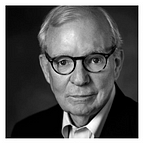The Zoo Station Exit
The East German government started building the Berlin Wall in 1961 to stop the inflow of western fascists who were undermining their socialist paradise. In truth, the wall’s primary purpose was to stop the vast numbers East Berliners from fleeing into West Berlin and reducing the East’s dwindling labor force. By 1965, concrete blocks had replaced the original barbed wire barriers. The wall itself was over eleven feet high, rolls of concertina wire adorned the top, and men with dogs patrolled their side of the wall. Along the wall’s eastern side were guard towers with heavy machine guns, powerful optics, and men with automatic weapons. The men, the optics, and the machine guns were turned toward the east.
I took the train from West Germany and traveled through East Germany to Berlin. That morning, the train stopped at the Zoo Station in West Berlin, but I decided to get off at the Hauptbahnhof (Central Train Station) that I assumed was in West Berlin. A bad assumption; all the passengers exited the train at the Zoo Station. I was confused and the only passenger as the train crossed the Berlin Wall. At the station, a tall East German Volkspolizei with a submachine gun and a crooked smile directed me to a steep and dark stairwell.
With my luggage, I negotiated several flights of steps and joined a long line in an enormous damp cellar waiting to talk to uniformed officials behind desks. I was certain that I’d be arrested, questioned with the help of rubber hoses; after more torture, I would be sent to a salt mine in Siberia. When I vanished, my parents would be frantic. On the other hand, a girl friend who had written me a five-page Dear John letter would be relieved.
I must have been talking to myself, when an Englishman in front of me turned and said, “What in the world are you mumbling about? You’re an American, aren’t you?”
“Yes. I should have gotten off at the Zoo Station. Now I’m going to be arrested and sent to Siberia because I don’t have an East German visa.”
“Steady, steady. If I were you, I’d go upstairs and take the first train back to the Zoo Station. Shoulders back, chin up, nothing to worry about.”
“Why are you here?” I asked.
“I’m a diplomat of sorts,” he winked at me. “Off you go. Cheerio.”
Going back to the platform, I wondered about the Englishman. Probably in his fifties, I thought his accent was upper class. He was wearing a London tailored suit with a Guards tie, hand-made shoes, and a white rose boutonnière. His luggage consisted of an expensive leather briefcase that was quite full. Sleekly barbered, his black hair was combed straight back like the British/American actor Ray Milland. Back then, I knew that East-West trade was a slippery and dangerous enterprise; perhaps it supported the Englishman’s inherent authority and his London tailor. Had I asked for his name, I suspect he might have said, “Bond.” A pause to light a cigarette, “James Bond.”
I was behind the Iron Curtain, The Iron Curtain for Christ’s sake. My hands were shaking; my imagination was galloping at flank speed. I tried calming my hands down. I took several deep breaths, put my shoulders back, lifted my head and climbed the stairs to the platform.
The same tall East German policeman was at the other end of the platform. Rather relaxed, he approached me with a genuine smile and asked, “You Americaner?”
“Yes.”
“Going Zoo?”
“Yes, the trip from West Germany was long and uncomfortable, not much sleep.” I put my hands together and leaned on them like I was sleeping. “I was in what you folks call hard class.”
He seemed to understand some of what I said. “From where in America?”
“California.”
“Hollywood?” He asked.
“Yes,” I lied. “Beautiful women everywhere.”
“True?”
“True.” I smoked back then and opened a fresh pack of Marlboros and asked, “American cigarette?”
He looked around and said. “Yes, please.”
I gave him a cigarette with my plastic lighter. He took a drag and said, “Thank you. American cigarettes betterest.”
That poor cop had a lousy job; the boredom must have been relentless. I pointed and said, “Zoo train.” I gave him the pack of Marlboros and the plastic lighter, and stepped onto the train as soon as it stopped.
On the train, I relaxed; being mowed down by a machine gun or dragged off to a Siberian mine would not happen. As the train was leaving, I turned to the policeman. He took a big drag from the cigarette and blew a perfect smoke ring. After a big smile, he waved goodbye; I smiled and waved.
